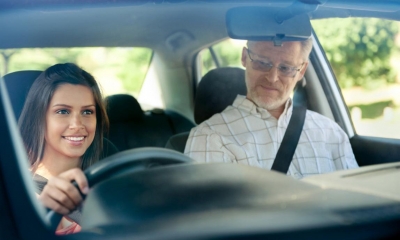
Some of the key areas where legislation is likely to affect childminders are listed below.
What licences does a childminder need?
Registration
Before you work in the UK as a professional childminder or childminding assistant you must, by law, register with one of the following:
- the Care and Social Services Inspectorate Wales (CSSIW)
- the schools and education inspectorate Ofsted (in England). If you look after children up to five years old you must register on the Ofsted Early Years Register and show you meet the standards set by the Early Years Foundation Stage (EYFS) framework. You must have an appropriate first aid qualification. If you care for children from five up to the age of eight you must also register on the compulsory part of the Ofsted Childcare Register
- the Care Inspectorate (Scotland)
- the local Health and Social Services Trust in Northern Ireland
Before they register you, your registering authority will want to be satisfied that both you and your premises meet certain minimum requirements for suitability. This will involve both a visit to your premises by an inspector and the checking of your references and background.
There is a charge for registration. Once you are registered you will normally be inspected by your registering authority every year. You won't usually get more than a couple of days notice before an inspection.
You must display your registration certificate where parents can see it.
For further information, call the Ofsted helpline (0300 123 1231), download the Ofsted Early years and childcare registration handbook or contact your devolved regional regulator or your local authority. You can also find out more by contacting the Professional Association for Childcare and Early Years (PACEY) in England and Wales, the Northern Ireland Childminding Association (NICMA) or the Scottish Childminding Association (SCMA).
Voluntary registration
There are some circumstances in which childcare providers don't have to register - for example if you only look after children who are aged eight years or more. But you can choose to register on the voluntary part of the Ofsted Childcare Register (or participate in the Childcare at Home Voluntary Approval Scheme in Wales).
Joining the voluntary register shows parents that you are committed to providing a professional childcare service.
Police checks
Before registering, you will be required to authorise a check on yourself and on any other members of your household aged 16 years or over. The check is carried out by the Disclosure and Barring Service (DBS) and will find out whether you or anyone living with you has ever been involved in violent crime or abuse of children. The Disclosure and Barring Service (DBS) and Disclosure Scotland maintain lists of people who have been barred from working with children. You must check that anyone you employ - like a childminding assistant - has not been barred. You'll need to join the DBS update service when you first register with Ofsted. The update service lets applicants keep their DBS certificates up to date online and also means you can check your employees' certificates online. A similar procedure operates in Scotland (the Protecting Vulnerable Groups Scheme). You can find out more on the DBS section of the Gov.uk website and on the Mygov.scot website.
During the registration process, your health and other references may also be checked by your registering authority.
Providing snacks and meals
If you regularly provide snacks and meals for the children in your care you'll need to register with your local authority as a 'food business operator'. You'll automatically be registered as a food business when you first register with Ofsted as a childminder. In Wales you'll need to register with your local council and in Scotland you should register with your local council environmental health department. You can download the Safer Food, Better Business for Childminders pack from the Food Standards Agency website as well as guidance on registering as a food business operator. You won't have to register if the children provide their own food - for example packed lunches - or if you only provide food very occasionally, for example a birthday cake.
Don't forget to make sure that parents know if certain allergenic ingredients are included in any of the food you provide for the children you look after - both home cooked and pre-packed items. The Food Standards Agency website has details of the 14 allergens you must provide information about.
Data protection
If you keep extensive computerised records about the children in your care - including digital photographs of them - you are likely to have to register as a 'data controller' with the Information Commissioner's Office (ICO). There is a small fee for registering. PACEY can provide their members with more information about data protection and ICO registration.
Resigning your registration
If you're a registered childminder but you haven't looked after children for three years or more, Ofsted can cancel your registration. If this happens, you're disqualified from providing regulated childcare in the future unless you can get the disqualification reversed - a process that can take a long time. To avoid being disqualified if you're not working - and to avoid paying unnecessary registration fees each year - it's best to resign your registration voluntarily. If you do this, you can easily re-register at any time in the future.
Vetting and Barring Scheme
The Disclosure and Barring Service (DBS) works to stop unsuitable people from working with children and vulnerable adults. The DBS operates the Vetting and Barring Scheme, which assesses anyone in England, Wales and Northern Ireland who wants to work with these groups and either registers them or bars them. A similar scheme operates in Scotland, run by Disclosure Scotland. Anyone on the barred list can not work with children and it is an offence to employ them. You can find out more on the DBS section of the Gov.uk website and on the Mygov.scot website.
Food hygiene
Childminders who offer meals and snacks on a regular basis to the children in their care are covered by food hygiene regulations. You'll need to keep records of how you keep food safe. You'll also need to register with your local authority as a food business operator. You can find out more on the Food Standards Agency website.
Planning permission
You won't normally need planning permission to start working as a childminder in your own home. But if you're going to look after an unusually large number of children there - perhaps by employing a childminding assistant or working with another childminder - then you may need planning permission. Contact your local planning department for more information if you're unsure.
Health & safety, fire
You must also make sure that you comply with workplace health and safety and fire safety legislation.
Employment legislation
Remember that many of the registration requirements that apply to you will also apply to any staff that you employ. It is your responsibility to inform your registering authority about any employees that will be helping you look after children left in your care. Anyone employing staff must comply with employment legislation. Important areas of legislation include:
Recruitment and employment contracts
Working time: hours, leave, flexible working
Maternity, paternity and adoption
Managing home workers, remote workers, lone workers
Sources of further information
Members of PACEY receive free advice on professional and legal matters. PACEY also offers its members free legal representation on childminding matters. You can find out more in their website.
Both the NICMA and the SCMA can also help and advise their members.
Further information and guidance leaflets on all aspects of health and safety are available on the Health and Safety Executive (HSE) and Health and Safety Executive Northern Ireland (HSENI) websites.
The employing people section of the Gov.uk website includes information and guidance on all aspects of employment legislation. Information for businesses in Northern Ireland is available on the NI Business Info website.
Insurance for a childminder
Contact an insurer or insurance broker and explain exactly how your business will operate - they will then explain what insurance cover you must have by law, and other cover you should consider.
Make sure your public liability insurance covers all the activities you'll do with the children in your care, including outdoor play.
Insurance cover that you might consider includes:
- toy library/equipment loan
- business interruption
- vehicle breakdown insurance
- employer's liability (if you intend to employ any assistants)
Notify your household insurers if you will be using your home to run a childminding business. Also, notify your motor insurer if you intend to use your vehicle to transport children in your care or use your vehicle for any other business purposes.
It is worth noting that the Professional Association for Childcare and Early Years (PACEY), the Scottish Childminding Association (SCMA) and the Northern Ireland Childminding Association (NICMA) offer members a range of insurance packages specifically designed for childminders. The insurance broker Morton Michel specialises in insurance packages for the childcare sector, including childminders.
In many cases, insurance policies specify how many children you will be insured to look after. 9 or 10 (including children aged over eight) is a common maximum.



